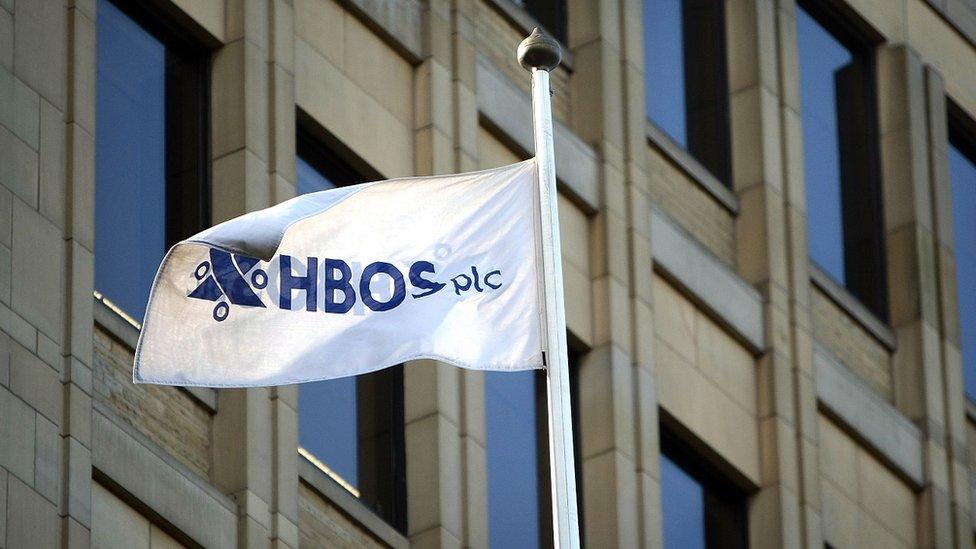Banking and the failure of policing
- Published
- comments

In one sentence, the major regulator of a crisis-ridden banking system reveals the truth about the chaos in the run-up to the financial crisis.
"The FSA [Financial Services Authority] was stretched almost to breaking point."
It is a comment given to one of the report's authors, Andrew Green, by Sir Hector Sants, the chief executive of the FSA from 2007 until 2012.
Reading through both HBOS reports, time and again it is revealed that major questions about why a bank was engaged in reckless lending are missed.
Opportunities to rein in excessive lending are rejected.
And the option of starting proper investigations and enforcement actions into who might be "personally culpable" for failures lost as increasingly desperate attempts were made to keep the banking system on its feet.
Indeed, Clive Adamson, the former director of supervision at the FSA, said that "the people most culpable were let off".
Keeping the ATMs open became the focus for a regulator that was "facing a day-to-day survival game" in the banking system.
That may be understandable in the teeth of a storm.
But the fact that the storm was allowed to gain such ferocity before someone started asking if the flood defences were secure is important.
And why it is worth studying closely today's reports on HBOS, even though for anyone who has looked at the investigations into the collapse of Northern Rock and Royal Bank of Scotland the criticisms will be wearily familiar.

Of course, the failure of HBOS was ultimately down to the management and board of the bank.
The bank rapidly increased lending to risky property ventures in Britain and abroad during a period of "almost uninterrupted economic growth".
It seemed like a one-way bet that could not fail.
HBOS financed that lending through what are known as the "wholesale markets" - funding provided by other banks.
Increasing market share was the key.
For a time it was hugely profitable - and flattered the bank's bottom line, much to the delight of investors.
When questions were raised about the major problems inherent in this approach they were often rejected, as the "risk function" at HBOS was seen as far less important than the race to make ever higher profits
When the property market started turning sour, HBOS was exposed. Wholesale funding started to dry up and "inappropriate risk taking" over many years was quickly revealed as unsustainable.
So, where were the police officers?
The stability of the bank was regulated by the FSA.
"Overall the FSA's approach was too trusting of firms' management and insufficiently challenging," the Bank of England report into HBOS says.
It also puts that in context, saying that "sustained political emphasis" during the era of the Labour government on "light-touch regulation" and the need to keep London "competitive" weighed heavily.
It is worth repeating Paragraph 1117 (yes, there are an awful lot of them) in full.
"It was inherently unlikely that senior leaders of the FSA would have proposed, before the first signs of the financial crisis, a supervisory approach which entailed higher capital and liquidity requirements, supervisory caps on rapid bank balance sheet growth, or intensive analysis of asset quality," the key paragraph says.
"If they had, it is likely that their proposals would have been met by extensive complaints that the FSA was pursuing a heavy-handed 'gold-plating' approach which would harm London's competitiveness."
Could it happen again? Of course, no-one can give an ultimate guarantee that any financial system is totally secure.
But, certainly, the capital and liquidity requirements for banks today are far higher.
And regulators are more intrusive.
But, as some argue that regulation has gone too far, it is worth remembering the content of these two reports on the collapse of HBOS, the failure of the policing system and the ultimate cost that was paid by the public.